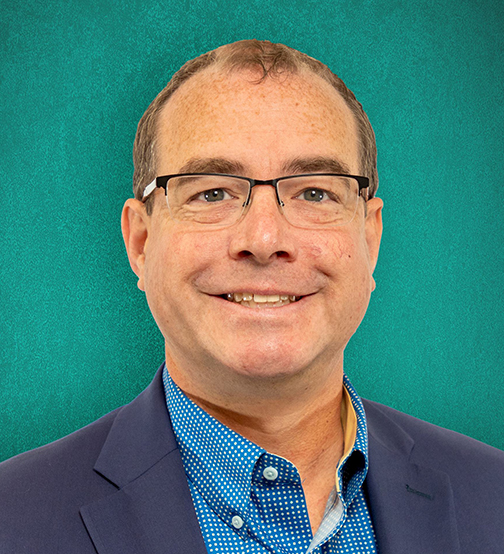Michael Rawl named new CEO of New Orleans JCC

While it may seem that Michael Rawl was born to head a Jewish Community Center, as he reflects on his journey to New Orleans, it was more like he stumbled into the work.
“It seemed like it would have been such a good choice,” he said, “but that’s not how it happened.”
In October, Rawl was announced as the new chief executive officer of the New Orleans JCC, having served as the executive director of the JCC in Buffalo for the last three years.
Rawl’s father was the only child of Holocaust survivors. “He had a perspective of a lot of children of refugees, you have to work hard and make enough money to take care of your family,” Rawl said. As he grew up, Rawl heard a voice in his head that it’s a great idea to be a teacher, social worker or artist, but will that really pay the bills? The thought of going into non-profit work didn’t enter his mind.
In college, he majored in comparative studies at Ohio State, but had no idea what he wanted to do with it. He worked for his father in finance “and was never really happy about it.”
He was asked to serve on the board of the JCC in Youngstown, Ohio, “and I had this epiphany.” He realized this field was one where being successful is correlated with building community — and one could make a living at it.
He became the assistant director, then the executive director in Youngstown. He admits there was a bit of a pay cut, but he felt “lucky to be able to do this work.” Instead of a punch-the-clock job, “I feel incredibly fortunate to invest my time in building community, making great outcomes for people.”
Still, the winding path he took prepared him for his current position. Living with his grandparents instilled a social conscience in him. His business experience and studies of how cultures interact, “that whole mesh is very appropriate for the work I do today.”
He followed up his undergraduate studies with a Master of Arts in Jewish Professional Studies from Spertus Institute in Chicago.
He is looking forward to a fresh start in New Orleans, having led two JCCs during the pandemic, each of which was its own challenge. He said the New Orleans JCC is “in a fantastic place, we had a strong recovery from the pandemic,” and credits former Executive Director Leslie Fischman and her team.
In Youngstown, they built a mobile meals program from scratch, doing 850 meals a day, five days a week, with lifeguards and front desk staff doing much of the work. “We didn’t lay anyone off.” They also ran a childcare for children of healthcare workers and employees of the Jewish assisted living home. “I felt lucky during the pandemic to have a strong sense of purpose,” he said.
Three days after he took the position in Buffalo in late 2020, the state shut down their fitness center due to a new wave of Covid. “We were right back to worrying about layoffs” and maintaining programs.
Being in New Orleans is “a great opportunity.” Aside from the chance to be part of an institution that dates back to 1855, he is a lifelong lover of jazz.
The fact that last year, there was six feet of snow in one storm in New York, and that just before driving to New Orleans at the beginning of November, there was snow on the ground in Buffalo, may have also contributed to his attraction to New Orleans.
In New Orleans, “it’s a little humbling to consider I’m standing on the shoulders of shoulders of shoulders” at the JCC.
He looks forward to helping enhance the JCC’s role as “the town square of Jewish life,” where all Jews are welcome, while also serving as “an embassy to our neighbors” and building partnerships throughout the community, exploring ways “we can use Jewish values to serve the greater New Orleans area.”
Jewish Community Centers are a unique place “where that is possible. We have a wonderful intersectionality where different peoples and cultures come together, and everyone is welcome.” In a time of rising antisemitism, that is even more important, he added.
But there is another aspect of Rawl’s thinking that this path was destined.
He and his sister had worked on family genealogy, then a couple years ago, they were contacted by an author. Susan Gordon had written a book, “Because of Eva: A Jewish Genealogical Journey,” about her search for relatives and her family history, sparked by the search for the woman who had buried her grandfather.
It turns out they were cousins. His grandfather had been born in Budapest, and came to America after the war on one of the 10,000 visas approved by President Truman, helped by the fact that he had been a translator for the U.S. Army.
Gordon told Rawl that his family ran a JCC in the Budapest Ghetto during the war, mainly to feed orphans. “That’s how they spent their time until the Budapest Ghetto was liquidated,” he said. “For me to have stumbled on this work and have the realization that maybe it is in my blood feels special.”



